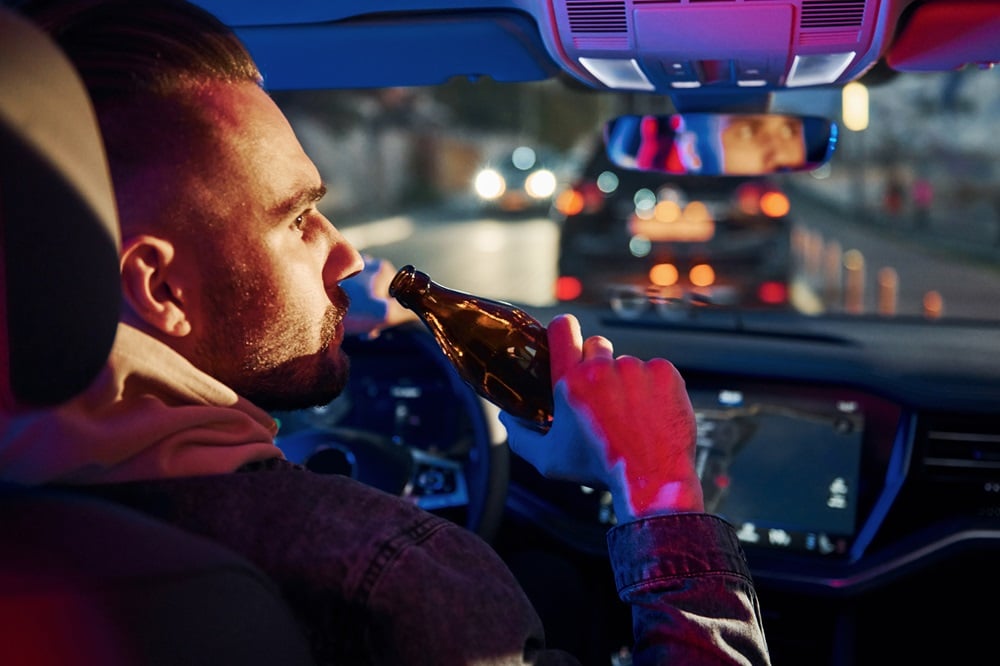According to a study by AlcoSense, 40% of Polish drivers believe that vehicle confiscation is an effective penalty for drunk drivers. New regulations regarding vehicle confiscation and stricter penalties for drunk driving, introduced in March 2024, will soon be tightened. The Ministry of Justice plans further changes for 2025, including confiscation of the vehicle for repeated offences, harsher penalties for reckless driving, and the introduction of educational programs for young drivers.
In response to alarming road accident statistics, the government has announced a series of changes to the law aimed at improving safety on Polish roads. The new regulations aim to tighten sanctions against law-breaking drivers and introduce additional regulations related to, among other things, traffic organization and young driver education.
New, stricter regulations in progress
During a press conference on November 15, Justice Minister Adam Bodnar announced an intensive legislative process aimed at introducing changes to the penal code, the code of misdemeanours, and traffic law. The new regulations aim to address the “plague of safety violations” and will be implemented following public consultation and the full legislative process. It is worth noting that in 2024 a significant change in the law was introduced – a regulation allowing for the confiscation of a car or its equivalent value in the event of the driver having above 0.75 mg/dm³ of alcohol in exhaled air or more than 1.5 per mille in the blood. If a driver causes an accident with less than 0.50 mg/dm³ of alcohol in exhaled air or less than 1 per mille in the blood, the court can rule for the vehicle to be seized. Exceeding these values results in mandatory vehicle confiscation. Possible consequences of drunk driving also include a fine and restriction or deprivation of liberty for up to 2 years.
The Justice Ministry proposes:
- A lifetime driving ban for persons violating court-imposed bans.
- Expanding the rules of vehicle confiscation, for example on those driving under the influence of alcohol (from 0.5 to 1.5 per mille) or with a court-imposed ban.
- Limiting the possibility of suspending imprisonment for accident perpetrators, who are subject to a driving ban or their blood alcohol level exceeded 1.5 per mille.
- Eliminating situations where driving bans overlap.
Interior and Administration Minister Tomasz Siemoniak also proposed measures to eliminate the most dangerous behaviours on the roads. One of the new solutions is the introduction of a crime of organizing and participating in illegal car racing. It is also planned to increase penalties for reckless and extremely dangerous driving. Furthermore, drifting – hitherto not covered by the regulations – will be classified as a traffic offence. Stricter penalties will also apply to offenders involved in fatal accidents, especially if the tragedy occurred as a result of illegal racing or violation of the driving ban.
“The crucial issue remains the question of how one can effectively improve road safety. It’s worth considering introducing tools that allow better monitoring of rule-breakers, such as a register of ongoing cases. Such a solution could help determine the actual situation, though it must comply with the presumption of innocence principle. Any changes should support the justice system in acting more effectively rather than simply increasing the severity of penalties. In my opinion, the legislator is attempting to encroach on the jurisdiction of the judiciary by imposing a specific solution in a given case, e.g. by requiring a lifetime driving ban without the possibility of making any other decision.” Comments advocate Gabriel Gatner (serwisadwokacki.pl).
Young drivers under scrutiny
At the same conference, Infrastructure Minister Dariusz Klimczak proposed changes related to young and inexperienced drivers. Under the amendment, a driving license can be obtained from the age of 17, provided driving is supervised by an experienced driver. Young drivers will also have a probationary period during which they will have to undergo additional training, stricter speed limits, and a zero blood alcohol limit. At the same time, a proposal was put forward to retract rights for individuals who drive vehicles despite having their driving licenses revoked. Increased control over demerit point reduction will also be introduced which will limit the chances of “cleaning the account” by habitual offenders.
“The latest proposals for changes in Polish traffic law, such as tightening penalties for drunk driving or expanding vehicle confiscation rules, show a clear direction towards improving road safety. Confiscating a vehicle from individuals driving under the influence of alcohol may have a preventive effect. As our research shows, as many as 40% of respondents consider such a penalty effective. It is important to remember that these regulations will only be effective if they are effectively enforced. However, drivers can themselves take responsible steps, for example by using a personal breathalyzer before setting off to ensure they can operate the vehicle. Knowledge about the effect of alcohol on the body’s operations is also important. Even if the breathalyzer shows 0.1‰, this should absolutely convince us to put away our car keys and order a taxi. Even with a minimal amount of alcohol in the body, a person loses the ability to concentrate. With a larger amount of alcohol in the blood, difficulty in distinguishing shapes may occur,” comments Hunter Abbott, a safety expert at AlcoSense.
Source: https://managerplus.pl/rzad-rozprawi-sie-z-pijanymi-kierowcami-jakie-zmiany-czekaja-nas-w-prawie-drogowym-30664
